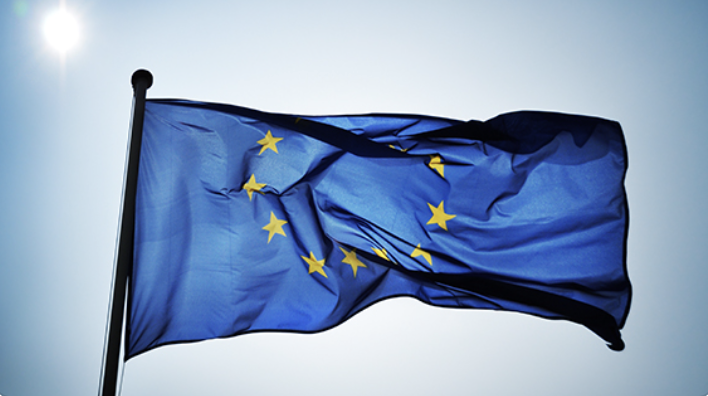Qatar has long dismissed all allegations raised against it, rejecting attempts to “drag its name” into the issue.
The European Commission is revising its policies on employee travel costs in response to the corruption allegations that a senior official accepted free flights from Qatar Airways while his team was negotiating a significant aviation agreement with the Gulf nation.
Henrik Hololei, the director general of the Commission’s transport division, reportedly had nine free flights with Qatar Airways between 2015 and 2021, Politico revealed last week. When his team was drafting a comprehensive aviation agreement with the government of Qatar, which controls the airline, he took the majority of these trips.
Two of these flights were fully funded by the government of Qatar, raising questions among MEPs about a possible conflict of interest, as per reports. Others were supported by advocacy organisations and conference planners.
In October 2021, the European Union and Qatar signed a comprehensive air transport agreement. By upgrading regulations and standards for flights between Qatar and the EU, the agreement liberalises air services. It includes obligations on social and environmental preservation as well as a promise from both parties to engage in fair competition.
According to a Commission spokesperson, in light of the disclosures, the Commission will be tightening its own regulations. Politico’s reporting on Hololei’s travels has “provided an incentive to review also other aspects of the guide where further clarifications could be necessary,” the official said. The institution has been revising its staff travel guidance “for a while,” notably to cut carbon emissions, the report said.
“The European Commission is in the process of tightening the rules concerning hospitality offered by an external event organizer to cover the mission costs of its staff members,” the spokesperson said, according to the report. “Accepting such hospitality will be restricted to major international commitments e.g. the UN, the G7 and the G20, and to hospitality offered by Member State authorities in the context of official visits within the EU.”
The most “controversial” of Hololei’s complimentary Qatar Airways flights would not have been permitted had these regulations been in place at the time. Hololei choose not to respond, according to the report.
When Politico first contacted the Commission for comments regarding Hololei’s free flights, a representative asserted that everything about his travel was legal but withheld any information about how any apparent conflicts of interest had been resolved.
There have been increasing requests for a probe lately.
Separately, in late January the European Commission said that it does not see “any grounds” in suspending the EU’s aviation agreement with Qatar in light of the corruption allegations in the bloc, Politico reported.
“Are there any grounds for us to consider that it should not continue to apply and [be] ratified? From the Commission’s side we don’t see any of those grounds,” Carlos Bermejo Acosta, a deputy director general at the Commission, told the Committee on Transport and Tourism (TRAN).
The TRAN discussion took place over the ratification process of the EU-Qatar air transport agreement, which provides the Gulf state’s airlines access to the region’s markets. Despite coming into force after being signed in 2021, the agreement is still being ratified by EU members.
The agreement must be ratified by all sides before being sent to the European Parliament for its members to approve it.
However, members of the European Parliament in January voted to pause further moves related to Qatar due to the ongoing allegations of the Gulf state’s involvement in the EU’s latest scandal.
The scandal emerged in December last year after Belgian authorities raided various locations of members of the European Parliament where they seized hundreds of thousands of euros.
Greek MEP Eva Kaili was among those accused of accepting bribes to influence the bloc’s policies related to Doha.
Qatar has dismissed all allegations raised against it, rejecting attempts to “drag its name” into the issue.
Qatar asserts
The EU scandal has dominated headlines over the past months with different names emerging in media reports as investigations continue.
Aside from Kaili, former MEP Pier Antonio Panzeri was also among the top names raised since the scandal was made public.
In late January, a Belgian court withdrew a request to extradite Panzeri’s daughter and wife to Belgium following an agreement between the Belgian court and Italian politician.
Panzeri’s wife Maria Dolores Colleoni and daughter Silvia Panzeri, also suspects in the scandal, will remain under house arrest in Italy instead of facing charges in Belgium.
Citing media leaks, reports were quick to claim Qatar, Morocco, and Bahrain’s alleged involvement in the scandal.
Last month, Qatar’s Foreign Minister Sheikh Mohammed bin Abdulrahman Al Thani confirmed Doha is “100%” sure that allegations of paying off European officials are baseless.
“As a State of Qatar, we are 100% sure that this premise has no basis. We didn’t see anything. There’s an ongoing investigation. We have to see; we have to wait until the investigation is over,” Sheikh Mohammeed told CNBC in his first comment on the matter.
Sheikh Mohammed highlighted that such Qatar-targeted allegations have only been from the media, and noted that the country itself has not yet received any such complaints from Belgium authorities.
“This problem is a problem that is happening in Europe for a European institution. It is better for them to look at their own institution and do all the steps required for them and not to drag our country’s name in such a situation,” he stressed.







